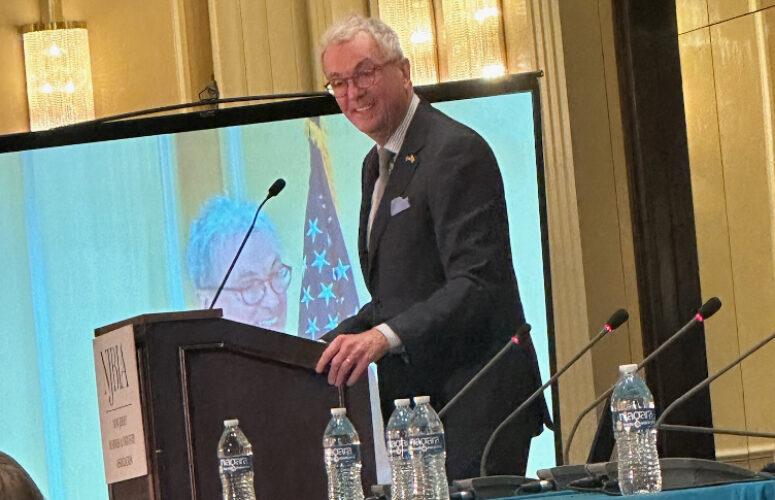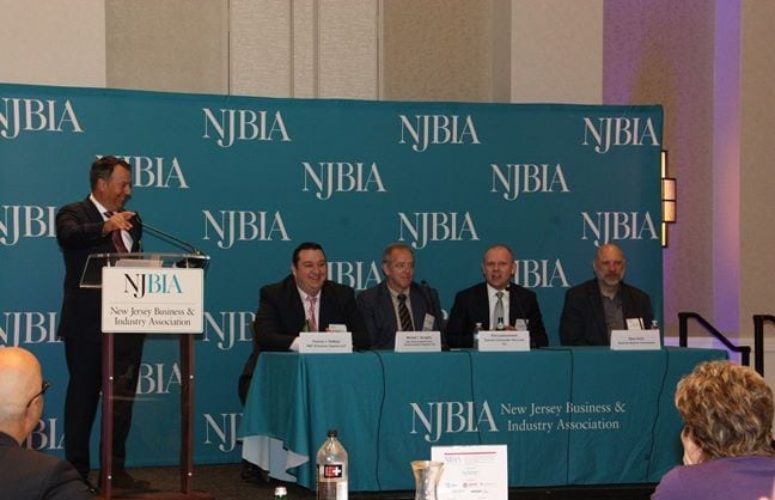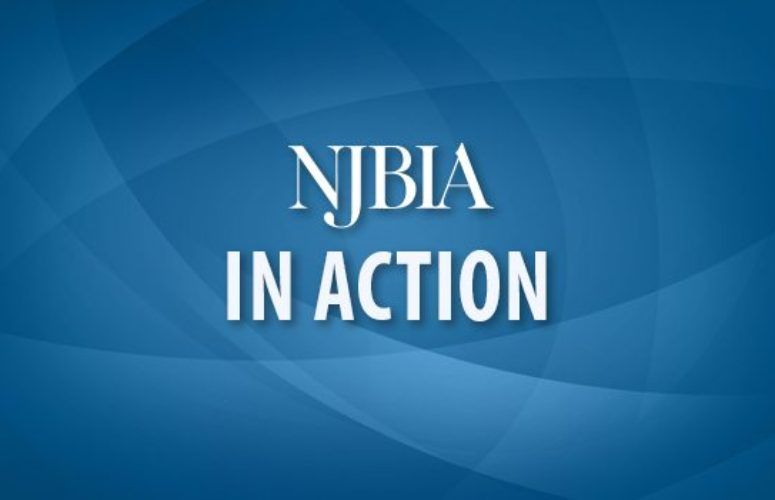
Murphy Reaffirms Commitment to Sunset CBT Surtax
By Jim Pytell, Managing Editor On Nov 28, 2023Gov. Phil Murphy reaffirmed his commitment to sunsetting a temporary Corporation Business Tax surcharge at the end of the year, pleasing the audience at NJBIA’s 2023 Public Policy Forum today in Woodbridge.
The temporary 2.5% surcharge is levied on top of the 9% corporate business tax. Murphy, who announced his intent to sunset the surtax at the beginning of the year, has been facing calls from progressive groups to extend the surtax to help fund NJ Transit.
The governor, however, told the crowd of 240 that the state plans to honor its commitment to New Jersey’s largest employers.
“I am still supporting the sunsetting of the corporate business tax surcharge on Dec. 31. A deal is a deal,” Murphy said. “We said this was a bridge to get to a better place and we meant it.”
NJBIA has amassed a yearlong campaign to ensure the temporary CBT surtax sunsets, and has even called for a further reduction of the CBT.
With the surtax, New Jersey has the highest overall CBT rate in the nation at 11.5%. Without it, New Jersey will still have the fourth highest CBT rate in the country at 9%.
The governor did note the need to be mindful of the state’s current structural deficit, which he said the sunset would exacerbate.
“Unlike Washington, D.C., we can’t run structural deficits indefinitely,” Murphy said.
Last week, Senate President Nick Scutari suggested to NJ Spotlight News his interest in extending the CBT surtax to help fund NJ Transit. To counter, NJBIA President and CEO Michele Siekerka released a statement explaining why it was a bad idea.
“New Jersey businesses deserve to believe their policymakers when they say something is temporary, and they need to fiscally plan long-term based on those promises,” Siekerka said.
“The argument for being an extreme, national outlier on business taxes ignores the most important principle of state tax policy – which is that New Jersey competes with other states for job creation. It also ignores the proven economic benefits other states with lower CBT rates enjoy.
“It is also unfortunate for any policymaker to say that a state needs to have the highest corporate business tax rate in the nation, by far, to afford to properly invest in transportation. New Jersey spends and taxes way more than most states already. New Jersey should instead observe how it spends, rather than seeking to further penalize our job creators,” Siekerka said.
Separately, Murphy said that while he believes the state has made progress in its goals of spurring more growth, alleviating inequities, and becoming more fiscally responsible, there is “still a way to go.”
He said that New Jersey will continue to support various workforce development and childcare initiatives, emphasizing their respective importance to the business community, and added that the state will look to bolster its signature industries such as pharmaceuticals, life sciences, telecommunications and technology.
“Look for us to continue to feed those industries that have been naturally ours, as well as find ways to place sensible bets on industries that are either new, period, or new to New Jersey,” Murphy said, citing offshore wind, sports betting, film and television and artificial intelligence as new industries in which the state plans to lead.
Overall, the governor said he remains bullish on New Jersey’s long-term outlook.
“We are well set up for the medium to long term,” Murphy said, adding that the state’s talent and geographic location continue to make it attractive – particularly to international companies.
“Whether you are a Democrat or a Republican, historically, if you fed those two engines – talent and location, and you were fiscally responsible, invariably good things happen,” he said.
To access more business news, visit NJB News Now.
Related Articles:





